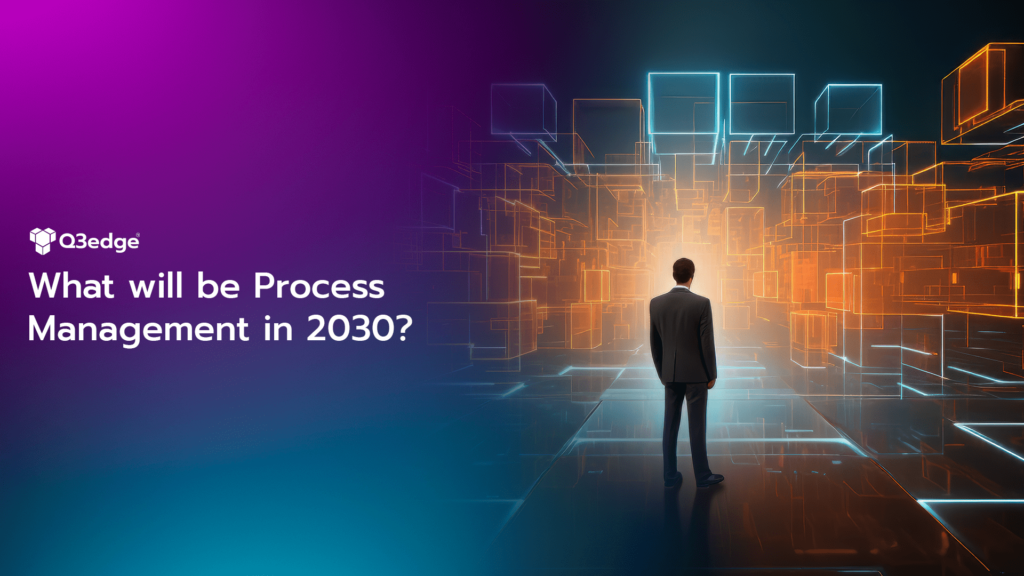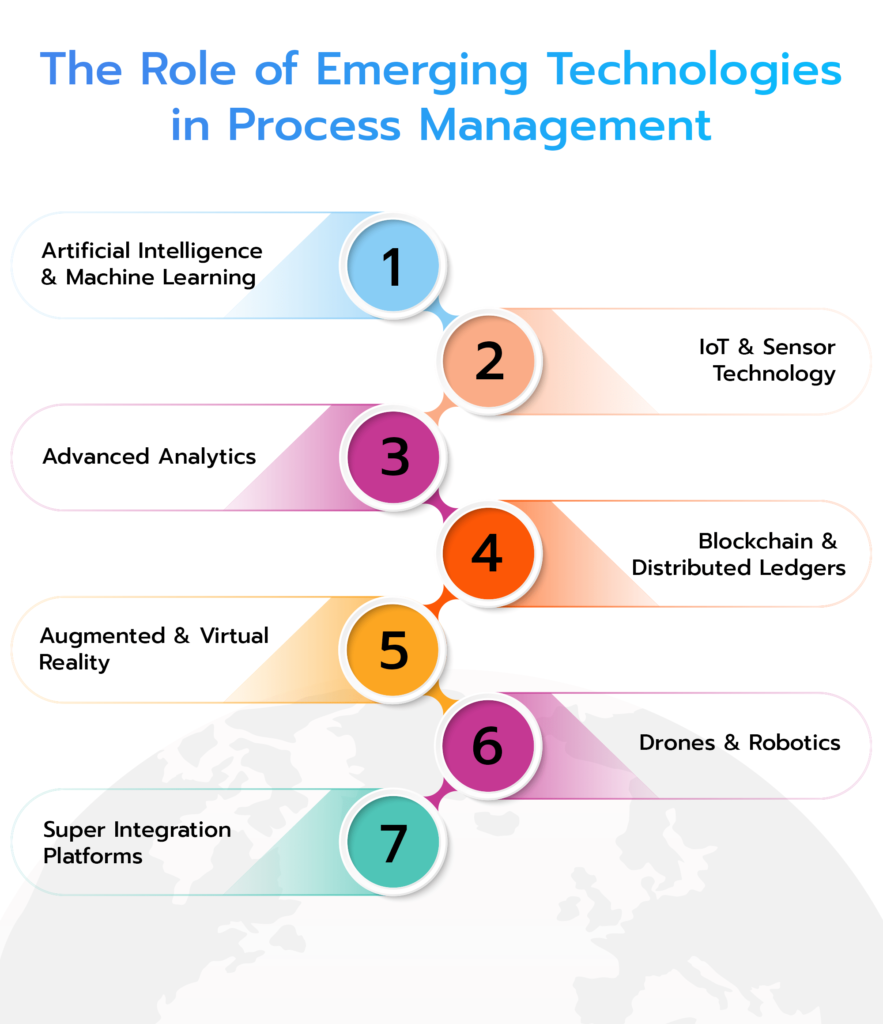What Will Be Process Management in 2030?

Business operations are only complete with process management. Every single sector has infused the domain of process management, and it has been there since the 1990s. This approach has helped businesses streamline operations and deliver their work hassle-free, matching with the client and customer expectations. Looking ahead to Process Management in 2030, the landscape is poised for even greater transformation. As technology evolves and global markets become more interconnected, the role of process management will expand beyond optimization to include predictive analytics, AI-driven decision-making, and agile methodologies. Businesses that embrace these advancements will not only meet but exceed client and customer expectations, setting new standards for operational excellence in the coming decade.
Today, thanks to technology, businesses have enhanced their process management and helped their business landscape evolve. With time to come, things will become even more fascinating thanks to technologies like AI, IoT, blockchain, AR/VR, and more. If you are thinking about what process management will be like in 2030, we will discuss all the aspects related to it below. Read on to know more.
Let’s know What Will Be Process Management in 2030?
The Evolution of Process Management Concepts
While process management concepts and principles have delivered substantial benefits, some of the fundamental ideas have remained unchanged for a long time. In the early 1990s, Michael Hammer, in his lectures, summarized the basic notions of process management quite concisely, stating that having any process is better than having none, a good method is preferable over a bad one, and even a good process can be improved further.
Process management has predominantly relied on methods and technologies that have proven themselves for over two decades, such as workflow management systems and process mining. However, the business landscape is changing at an unprecedented pace, with successive crises prompting companies to challenge existing models and quickly adapt through digital transformation. Technologies transforming various industries include AI, ML, VR, AR, blockchain, IoT, autonomous systems, cloud computing, and more.
In such a dynamic environment, some pertinent questions arise about the relevance of classical process description approaches. With increasing complexity, can processes still be meaningfully depicted through traditional flowcharts? Will optimization and excellence still require human involvement, or should systems become self-learning and autonomous? An argument can be made that process management should operate at a meta-level regardless of underlying technologies and models. However, how suitable will it be in a VUCA world with ever-rising speed and uncertainty?
These considerations point to an evolution of fundamental process management concepts. While the objectives of optimizing workflows and achieving organizational goals remain unchanged, the approaches may need to transform significantly. Let’s examine some aspects that could reshape process management practices by 2030.
The Role of Emerging Technologies in Process Management
Advanced Process Excellence- Through Pervasive Intelligence
- Embedded IoT networks generating 360° process visibility
- AI driven digital twins facilitating autonomous optimization
- Immersive simulations boosting scalable collaborations
- Adaptive systems ensuring resilience to uncertainties

Several technologies emerging today are poised to massively impact how processes will be designed, managed, and optimized in the future. Advanced analytics through machine learning applied to extensive digital footprints will generate unprecedented situational awareness. It, combined with other tools, can take process management practices to the next level.
Artificial Intelligence & Machine Learning
AI and ML are evolving at an exponential pace and will permeate various facets of business process management. Intelligent data mining capabilities can provide a real-time, 360-degree view of cross-system processes beyond traditional functions. AI agents may continuously monitor KPIs, map intricate patterns, proactively flag anomalies and risks, simulate scenarios, generate forecasts, and test optimization strategies. It will enhance decision-making for streamlining operations to maximize efficiency.
IoT & Sensor Technology
The network of intelligent sensors embedded in physical assets, products, and environments will increase further. Connected IoT feedback loops combined with AI will spawn sophisticated digital twins of operations. From the movements of people and equipment to resource consumption and energy footprints – an exhaustive, contextual awareness of anything tangible or intangible will emerge. This industrial ‘nervous system’ will facilitate self-optimization at previously unseen levels.
Advanced Analytics
Deep analytics goes beyond superficial KPI tracking to deliver actionable, predictive intelligence. AI will leverage diverse internal and external data pools, including unstructured text, images, and videos, for rich, multidimensional analysis. This holistic view, along with advanced modeling capabilities, will drive highly responsive automatic decision systems that constantly learn and recalibrate outcomes. Process scenarios envisioned today will appear rudimentary.
Blockchain & Distributed Ledgers
Blockchain networks facilitate trustless, transparent collaboration by distributing transaction records across all nodes. It will stimulate innovation in managing partner ecosystems and supply chain visibility. Intelligent contract automation embedding compliance rules can mitigate risks while accelerating approvals. Tamper-proof distributed process mining on blockchain datasets may replace fallible centralized repositories. Overall accountability, auditability, and resilience will rise.
Augmented & Virtual Reality
AR/VR technologies enhance spatial understanding and experiential learning. Interactive simulations and visualizations of complex processes in mixed virtual-physical contexts will boost employee engagement and skill development. Digitally overlaying the correct context-aware information and intuitive controls will streamline tasks. Immersive training environments inspired by gaming techniques can optimize role-playing of non-routine situations. Creative applications of these tools are boundless.
Drones & Robotics
Robotics will permeate labor-intensive processes like material movements, repetitive maintenance activities, and inventory checks with autonomous mobile tools. Advanced perception capabilities of drones equipped with varied sensors may augment facility surveillance, equipment monitoring, aerial mapping, and incident reporting and drastically improve safety. Swarms of intelligent drones working in synchrony can survey vast industrial areas, providing high-resolution patio-temporal data supporting predictive analytics.
Super Integration Platforms
Powerful integration platforms equipped with low-code configurations will facilitate easy implementation of disruptive emerging solutions. Pre-built connectors and templates will accelerate the integration of fragmented legacy systems and novel tools into unified environments. Augmented developer experiences will catalyze customization by non-technical experts to continuously evolving requirements. Democratizing innovation will be essential.
Impacts on Process Ownership and Governance
A New Paradigm of Operational Agility
Through Symbiotic Human-Machine Partnerships
- Fluid organizations formed around transitional objectives
- Citizens are empowered to create workflows on platforms
- Bots handle standardization, while humans innovate
- Interactive dashboards are visualizing multidimensional impacts.
The influx of advanced technologies is likely to disrupt existing notions of process ownership, management structures, and governance models. While human oversight will still be needed in the foreseeable future for non-routine decision-making, many standardized tasks can be delegated to autonomous systems.
Distributed Process Ownership
As line functions are transformed by AI and bots performing functional tasks, process ownership may shift to more collaborative, cross-functional models. Shared process responsibilities need not be hierarchical, reflecting dynamic participation based on contextual expertise and data-driven influence. Platforms facilitate transparent cooperation across distributed teams.
Flatter Organizational Structures
Rigid top-down hierarchies will gradually flatten as autonomy scales up. AI recommendation-based governance supplemented by crowdsourced input from employees may birth self-organizing structures. Dynamic roles focused on supervision, exception management, and innovation will replace obsolete forms. Talent pools will form around transitional virtual organizations for specific objectives.
Democratic Process Design
Citizen participation aided by low-code tools can democratize process design. Domain experts will conceptualize and refine workflows relevant to their contexts intuitively on user-friendly platforms. Standard components supported by analytics suggest optimal configurations validated through simulations before deployment. Top-down mandates will loosen.
Autonomous Process Optimization
Continuous process monitoring leveraging diverse data streams coupled with advanced modeling will enable the autonomous detection of inefficiencies. Systems will independently analyze root causes, evaluate trade-offs, and implement minor enhancements with minimal human oversight. Significant changes still require strategic business approvals and stakeholder alignment to ensure goals and risks are well-balanced.
Process Choreography & Mining
Massive digital footprints available through industrial IoT networks, ERP transaction logs, blockchain ledgers, and more will facilitate extremely granular discovery of as-is processes based on actual event sequences. Combined with external contextual data, intelligent mining systems can automatically generate optimized choreographies and a digital process backbone independent of legacy structures.
Machine Collaboration for Excellence
Human-centered design thinking coupled with the scale and speed of technology could realize unprecedented levels of operational excellence. Co-creation between empowered employees, managers, AI experts, citizen data scientists, and other stakeholders may give rise to novel hybrid structures self-adapting according to detailed requirements through recursive learning. The core would emphasize symbiotic rather than competing human-machine collaboration.
Data Ownership and Governance
Centralization of sensitive data poses ethical issues around access controls, security vulnerabilities, monopolistic tendencies, and related risks, which blockchain mitigates inherently. On the other hand, fragmentation also introduces complexity. Regulations may drive decentralized data sovereignty with steward models, where both organizations and individuals exercise rights over consented access supporting transparency. Privacy-respecting AI governed by multi-party agreements can balance various stakeholder needs.
Evaluating Process Performance
Traditional practices for assessing process outcomes may not suffice in the future. Context-aware key performance indicators computed based on real-time analytics of multifaceted datasets captured through distributed ledgers, IoT networks, and user metrics can deliver deeper situational intelligence. Dashboards visualizing patio-temporal impacts on both hard and soft goals through immersive interfaces will facilitate more nuanced, iterative improvement. Static periodic reviews will transform into continuous optimization loops.
Enabling Skills and Education
Novel process-related roles centered around horizontal collaboration, stakeholder alignment, integrated problem-solving, digital/business modeling understanding, and managing autonomous systems through policy settings and oversight will emerge. Educational frameworks need revision incorporating transdisciplinary synergies between domain expertise, design-led innovation capabilities, technology proficiency, and entrepreneurial mindsets to match these evolving job roles. Upskilling the existing workforce and imparting relevant education also presents opportunities.
Overall, process management philosophies that have served organizations well so far will witness a significant shift facilitated by the fusion of advanced technologies with human skills, creativity, and governance. While complete automation is unlikely, synergistic human-machine partnerships at organizational and operational levels promise to take outcomes way beyond existing perceptions, thereby ushering in a new era of responsiveness, resilience, and excellence. Continuous adaptation through co-creation will be crucial.
Final Thoughts
To summarize, while conceptual goals remain, process management is poised for an evolutionary transformation. The fusion of multiple emerging technologies with human aptitude holds the potential to elevate responsiveness, agility, and performance radically. Continuous learning partnerships between man and machine may birth novel paradigms ensuring process management’s relevance amid the dynamic business realities of 2030.
